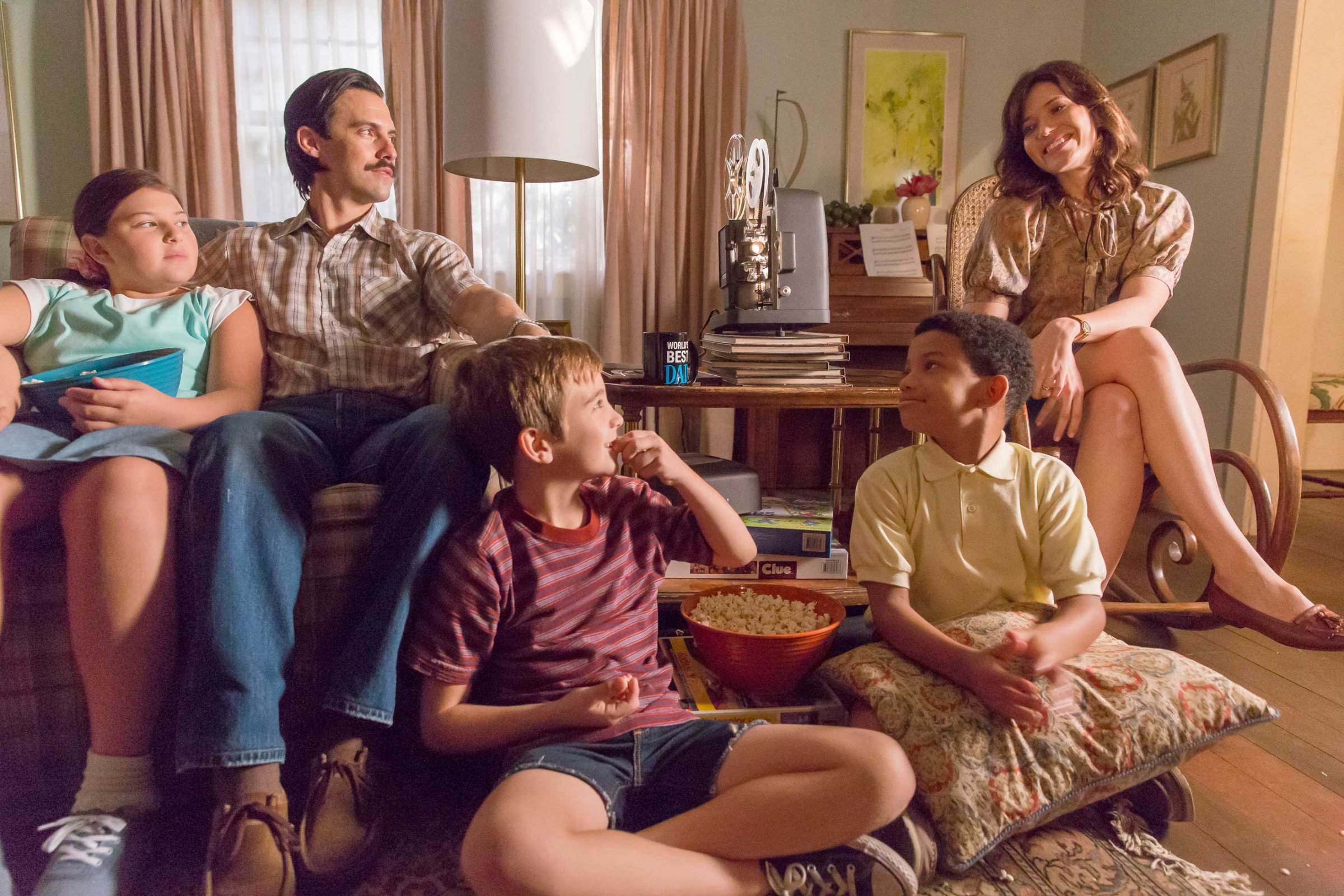
The title This Is Us is almost perfectly meaningless. Together, the three words signify nothing beyond a vague concept of uplift and unity. A show with that title could be a show about anything. That’s exactly what This Is Us on NBC is: a hazy attempt to confront a number of human experiences gradually approaching infinity. Skittering across decades to tell the story of the fraying Pearson family, This Is Us is fluent in the language of empathy. It’s addicted to narrative twists and to suffering, and its piling on of incident is pure soap opera–and that ludicrous excess accounts for the show’s stratospheric success.
This Is Us, created by Crazy, Stupid, Love writer Dan Fogelman, is among the highest-rated shows on television and was nominated for a Golden Globe for Best Drama. It’s easy to see why, given the broad strokes with which the show paints the Pearsons. The pilot, which aired last fall, introduced three plotlines: a husband and wife (Milo Ventimiglia and Mandy Moore) expecting triplets, a man (Sterling K. Brown) seeking his biological father, and a brother and sister (Justin Hartley and Chrissy Metz) who deal with his distaste for his fame and her struggle with obesity.
Any of these plotlines alone would have plenty of potential. Combined, they make for a shock-and-awe campaign. The first episode’s twist–that Ventimiglia’s and Moore’s characters are expecting the babies that will become Hartley and Metz and adopt the baby that will become Brown–presaged a bushel of hairpin reversals, including the death of Ventimiglia’s Jack Pearson.
Brown’s Randall Pearson seems to exemplify the show’s attitude toward its characters: their lives are an endless struggle, allergic to resolution. Randall finds his father (Ron Cephas Jones), only to learn that Dad is a mortally ill recovered addict and that he colluded with Moore’s character to hide his identity to preserve Pearson family unity. Also, he is bisexual. Amid all these discoveries, Randall talks a co-worker out of committing suicide and has a revelation about his relationship with his mother while on mushrooms.
This surplus of plot makes This Is Us compulsively watchable, if only to find out what happens next. The performances are strong, particularly that of Brown, an Emmy winner for The People v. O.J. Simpson. And each episode is careful to provide momentary catharsis, a scene uniting various Pearsons in a moment of bonding before they plunge into new insanities.
At times, the show can’t get out of its own way. Many of its stories twist potentially interesting subject matter into the merely upsetting–with brief uplift at the end. Its handling of Metz’s Kate, for example, is just unfair. A woman who’s struggled with body image her whole life, Kate endures endless plot ditherings about weight (culminating, recently, with her boyfriend committing to diet with her, then collapsing from a heart condition) that leave no room for an inner life. We suffer with her, but we have no idea who she is besides a number on a scale.
The characterization matters less than the suffering, maybe making This Is Us the perfect show for a national audience more and more certain that things are on the wrong track. The scenes that matter aren’t the unconvincing bonding moments–they’re the ones in which the characters marinate in their own private hell, dealt with a jazzy élan by the show’s writers. After a few episodes, the amount of plot became so great that we no longer really need to recall why each character is sad. We just feel that they are.
This Is Us airs Tuesdays at 9 p.m. E.T. on NBC
More Must-Reads From TIME
- The 100 Most Influential People of 2024
- The Revolution of Yulia Navalnaya
- 6 Compliments That Land Every Time
- What's the Deal With the Bitcoin Halving?
- If You're Dating Right Now , You're Brave: Column
- The AI That Could Heal a Divided Internet
- Fallout Is a Brilliant Model for the Future of Video Game Adaptations
- Want Weekly Recs on What to Watch, Read, and More? Sign Up for Worth Your Time
Contact us at letters@time.com